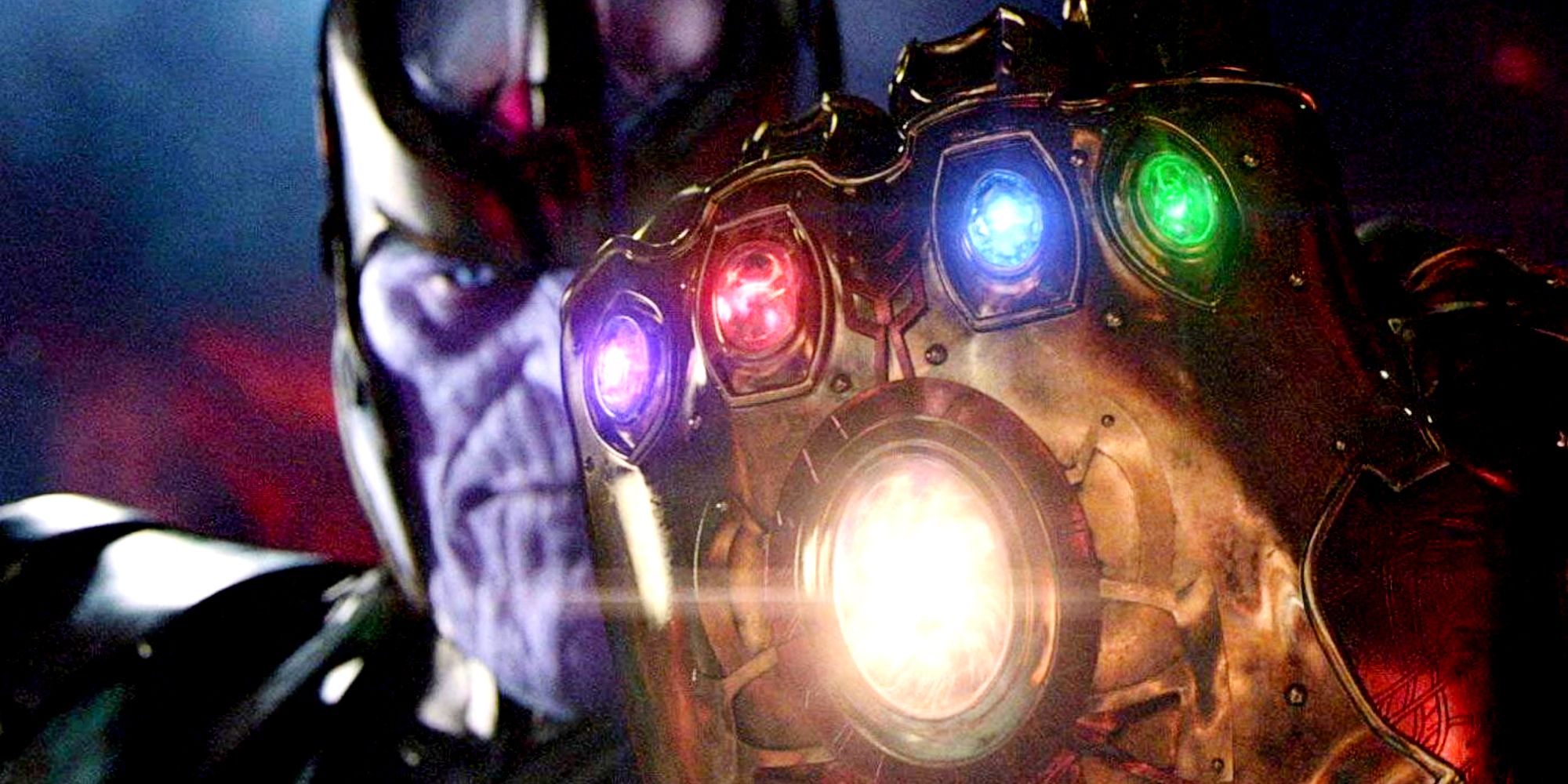[[{“value”:”
Summary
The origin of the Infinity Stones dates back to the ’70s and has led to some of Marvel’s most compelling stories.
The saga of the Infinity Gauntlet has woven itself into the fabric of the Marvel Universe for over 50 years, showcasing its immense power.
The Infinity Gauntlet is one of the most powerful weapons in the Marvel Universe, and the Fantastic Four’s Reed Richards coined a much better name for it. With the Gauntlet, the user can do practically anything, limited only by their imagination. For such a powerful object, the name “Infinity Gauntlet” feels underwhelming, but in 2012’s Fantastic Four #605.1, an alternate Reed Richards gives it a new, and better, name.
Marvel’s Infinity Stones (and Where They First Appeared)
Stone
First Appearance
Soul
Marvel Premiere #1 (1972)
Mind
Captain Marvel #41 (1975)
Power
Marvel Team-Up #55 (1977)
Time
Marvel Team-Up #55 (1977)
Space
Avengers Annual #7 (1977)
Reality
Avengers Annual #7 (1977)
Fantastic Four #605.1 is written by Jonathan Hickman and drawn by Mike Choi. The issue runs down the origin of the Council of Reeds, a congress of Reed Richards from across the multiverse. One of them, as seen in a flashback sequence, possesses his universe’s equivalent of the Infinity Gauntlet. A villain in his world, he uses the Gauntlet to vanquish his enemies.
He reflects on using it, and at one point calls it “the God Hand.”
The Story of the Infinity Gauntlet Is a High Mark in the Marvel Universe
The Infinity Stones Have Driven Some of Marvel’s Best Stories
An alternate Reed Richards of the Fantastic Four, gave it the perfect one: the God Hand. This name works better, as the Infinity Gauntlet basically turns its user into a god
The saga of the Infinity Gauntlet has stretched across the Marvel Universe for over 50 years, since the introduction of Adam Warlock’s Soul Stone in the early 1970s. In time, more Infinity Stones appeared, and in 1990’s Thanos Quest, the Mad Titan fought the Elders of the Universe. As he defeated each one, he took their Infinity Stone. Assembling the Infinity Gauntlet, Thanos then proceeds to use it to kill half the universe’s population. Even after Thanos’ defeat, the Infinity Stones continue to be a source of woe for the Marvel Universe.
Infinity Gauntlet
was not the first time Thanos tried to use the Infinity Stones for evil. In 1977’s
Avengers Annual
#7, he uses them for the first time in a bid to destroy every star in the universe.
There is no denying the power of the Infinity Gauntlet. In addition to Thanos using it as a means of murder and destruction, the Gauntlet has been used for more noble and constructive purposes as well. Early in Jonathan Hickman’s run on the Avengers, the Illuminati reassembled the Gauntlet. Captain America then used it to move another universe and keep it colliding with ours.
Although the Infinity Stones are now scattered across the Marvel Universe, someone can always gather them together once again, and unleash their power. The Infinity Stones, when used together, can achieve almost anything the user desires.
Marvel’s Infinity Collar Is the 1 Weapon Equal to Thanos’ Infinity Gauntlet
The Infinity Gauntlet allowed Thanos to manipulate all 6 Infinity Stones at once and its power is only matched by 1 other weapon: the Infinity Collar.
The “God Hand” Is a Much Better and More Accurate Name for the Infinity Gauntlet
Marvel Should Look Into Maybe Changing the Infinity Gauntlet’s Name
With such power behind it, the name “Infinity Gauntlet” can be viewed as a little lacking. Beyond the word “infinity” in the name, there is no indication of what the Gauntlet can do. The name does not fit, but an alternate Reed Richards of the Fantastic Four, gave it the perfect one: the God Hand.
This name works better, as the Infinity Gauntlet basically turns its user into a god. The name “Infinity Gauntlet” also has negative connotations thanks to Thanos, but the name “the God Hand” is more neutral, and a better indicator of its power.
“}]] A much better name. Read More

